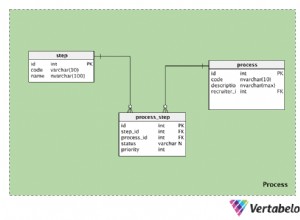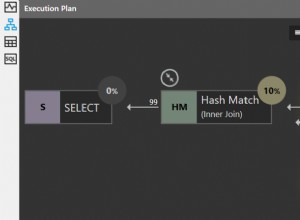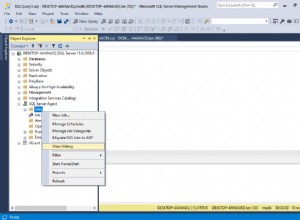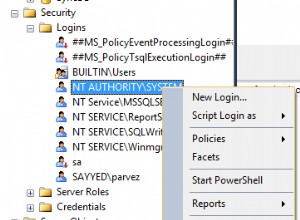Si bien todavía dudo que las transacciones y/o las inserciones por lotes sean una solución viable para su problema de uso de recursos, siguen siendo una mejor solución que preparar declaraciones masivas como sugirió Dave.
Pruébelos y vea si ayudan.
Lo siguiente asume que el modo de manejo de errores de PDO está configurado para generar excepciones. Por ejemplo:$db->setAttribute(PDO::ATTR_ERRMODE, PDO::ERRMODE_EXCEPTION); Si, por alguna razón, no puede usar el modo de excepción, deberá verificar el retorno de execute() cada vez y lanza tu propia excepción.
Transacción única:
$sql = $db->prepare("INSERT INTO players (name, level, vocation, world, month, today, online) VALUES (:name, :level, :vocation, :world, :time, :time, :online) ON DUPLICATE KEY UPDATE level = :level, vocation = :vocation, world = :world, month = month + :time, today = today + :time, online = :online");
$db->beginTransaction();
try {
foreach ($players as $player) {
$sql->execute([
":name" => $player->name,
":level" => $player->level,
":vocation" => $player->vocation,
":world" => $player->world,
":time" => $player->time,
":online" => $player->online
]);
}
$db->commit();
} catch( PDOException $e ) {
$db->rollBack();
// at this point you would want to implement some sort of error handling
// or potentially re-throw the exception to be handled at a higher layer
}
Transacciones por lotes:
$batch_size = 1000;
for( $i=0,$c=count($players); $i<$c; $i+=$batch_size ) {
$db->beginTransaction();
try {
for( $k=$i; $k<$c && $k<$i+$batch_size; $k++ ) {
$player = $players[$k];
$sql->execute([
":name" => $player->name,
":level" => $player->level,
":vocation" => $player->vocation,
":world" => $player->world,
":time" => $player->time,
":online" => $player->online
]);
}
} catch( PDOException $e ) {
$db->rollBack();
// at this point you would want to implement some sort of error handling
// or potentially re-throw the exception to be handled at a higher layer
break;
}
$db->commit();
}




